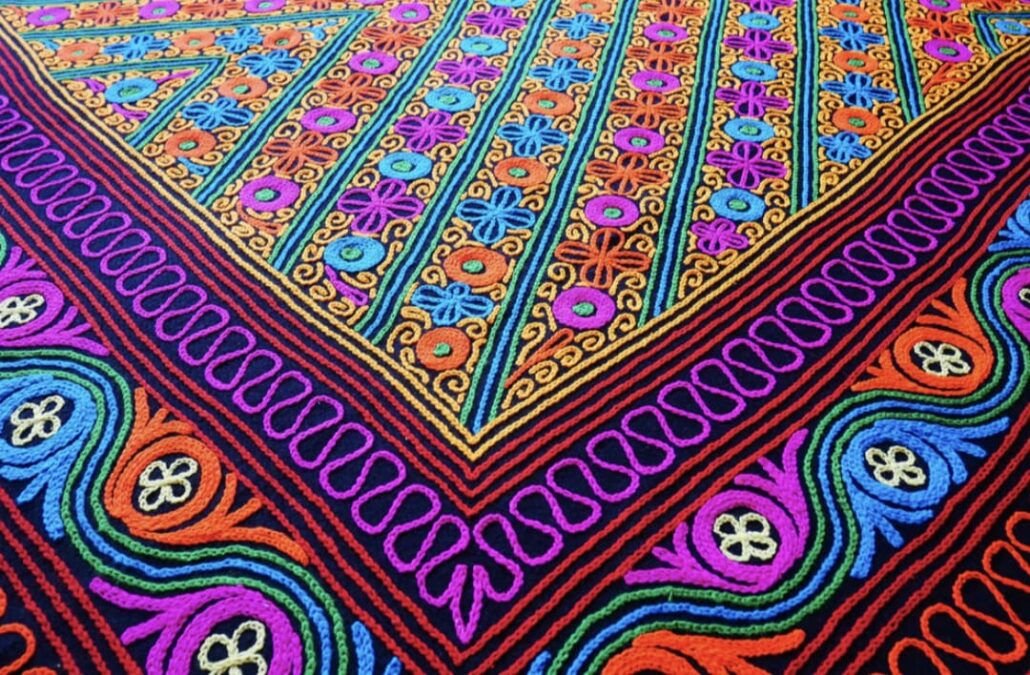
The traditional crewel work on Gabba, one of the oldest and most cherished handicrafts of the Kashmir Valley, is facing the threat of extinction due to declining demand.
Artisans who have dedicated decades to this craft shared with the news agency—Kashmir News Observer (KNO) that the creation of Gabba—embroidered Kashmiri rugs—dates back to the late 16th century during the Mughal era.
While crewel work has traditionally enhanced the appeal of Gabba and related items, such as cushions, demand has sharply decreased, they lamented.
Syed Noorullah, a crewel artisan with 30 years of experience, lamented that many artisans are struggling to earn a livelihood from this craft.
“As a result, many have shifted to other occupations, while a few continue out of passion rather than necessity,” he said.
Noorullah said that Gabba was once a vital source of warmth during the harsh winters, accessible to both the wealthy and the poor due to its affordability.
He said the decline in demand for Gabba is due to the dominance of machine-made carpets in the market, which has forced many artisans to seek alternative employment. “The newer generation is unwilling to pursue this profession due to its low profitability,” he said.
“Even after working tirelessly for thirty years, I struggle to make ends meet. If I work from dawn to dusk, I barely earn Rs 200 a day, which is insufficient to cover basic expenses,” he added.
Other artisans said that the presence of middlemen has further exploited them. “These middlemen purchase pieces at minimal prices and resell them at higher rates. This leaves artisans with little compensation for their labour,” an artisan said.
The artisans have expressed disappointment with the government’s lack of action to revive this centuries-old craft.
They have called for the attention of Chief Minister Omar Abdullah to help preserve this vital aspect of Kashmir’s cultural heritage—(KNO
